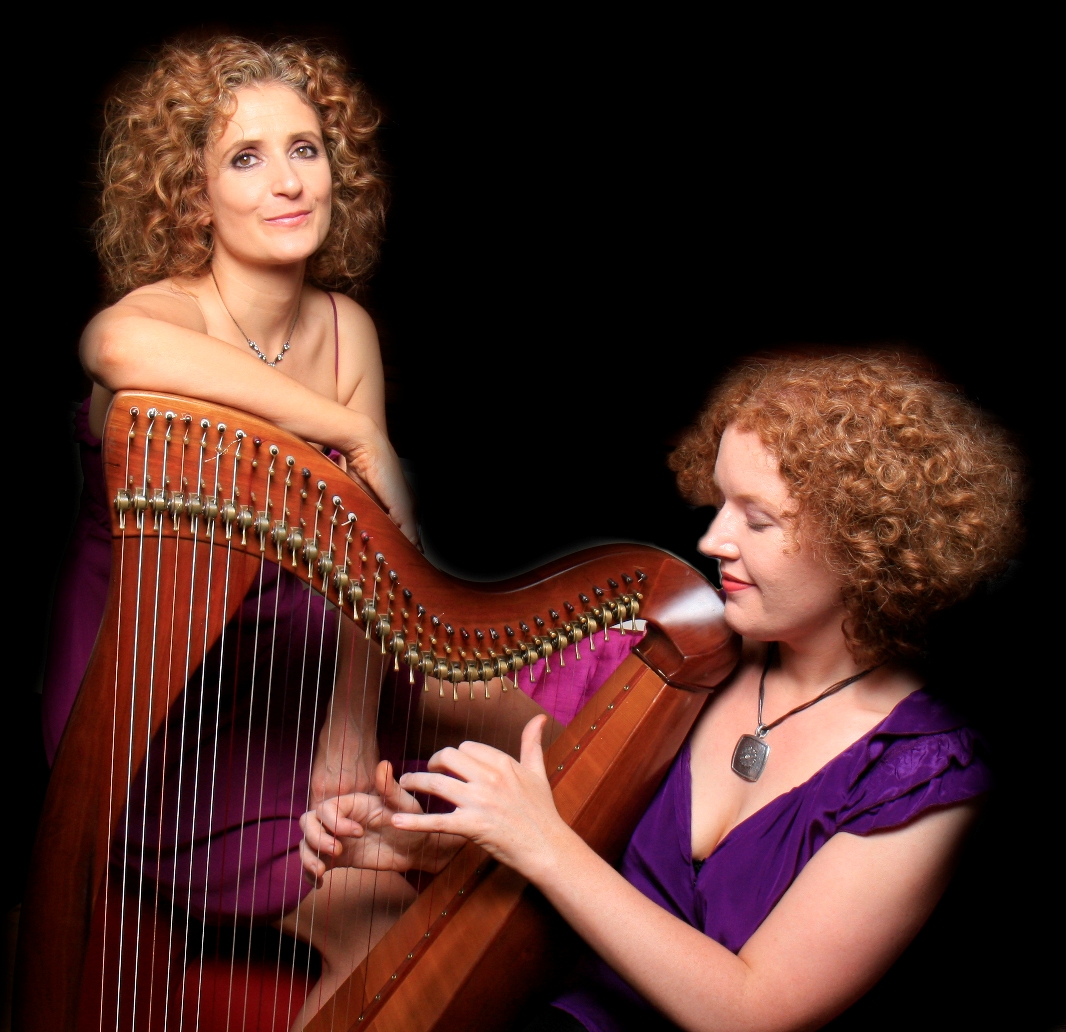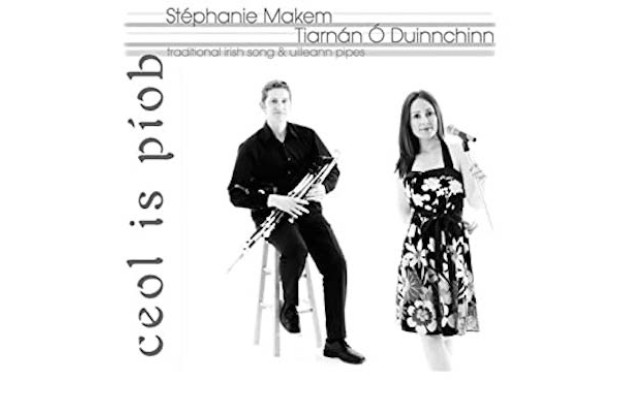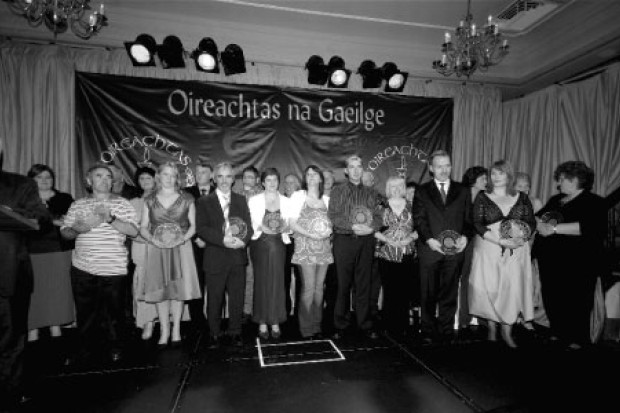
Ályth McCormack and Tríona Marshall, Red & Gold
Both Tríona Marshall and Ályth McCormack have been regulars in the Chieftains’ line-up in the last few years and through that connection, and encouraged by McCormack’s husband Noel Eccles, they came together last year to record this voice-harp album (whose cover I recently praised). Across eleven tracks of traditional Scottish songs, modern ballads, the odd pop vibe, and a set of reels, including one by Marshall herself, the pair present an unusual mixture of genres in arrangements ranging from solo to multi-instrumented and layered.
Though Marshall’s harp is thankfully allowed to stand out, McCormack’s voice dominates Red & Gold, and one characteristic of her singing that I observed is the versatility of her accent, going from an r-rolling Scottish to a plainer Gaelic and on to something nearly unplaceable, depending on what each song inspires in her. The range of moods here is narrower but sufficient for the songs chosen. On the opening track, ‘Crazyman Michael’, with its whispered echoing and ‘oo-ing’ second vocal track, I feel McCormack comes a little close to over-emoting, and the accompaniment and setting on harp, fiddle and percussion on that song are a little forced. The fragile ‘Chicago Rain’ that follows, and the later ‘As Long As You Remember Me’ are sentimental songs, and neither voice nor music hold me fully; though Marshall’s varied plucking on the former does show how the harp alone can be the equal of a number of other instruments in terms of accompaniment.
The third track, ‘Gaelic Breisleach’ (based on a poem by Aonghas MacNeacail put to music by Donald Shaw), is in a more traditional mode, and McCormack’s voice seems to take strength from that. Both singer and harpist seem more at home on the traditional songs (‘An T-Iarla Diurach’, ‘Mar a tha’, ‘Uamh an Oirr’, ‘The Saw Set’), and thereby more confident about how to present them. Indeed, on ‘Uamh an Oirr’, late in the album, McCormack sings without accompaniment and shows how little she needs in terms of production to command your full attention.
Contrary to this observation, a highlight of the album for me is the version of Eleanor McEvoy’s ‘The Sea is So Huge’. The strong rhythm driving its verse and the charming melody of its chorus are minimally but atmospherically arranged to good effect, and McCormack’s close vocal ends up needing to do very little to find its place and its mood.
The ballad, ‘One in a Million’, by Hugh Lupton and Chris Wood, asks on the one hand if Marshall can find a worthwhile approach to this well-known melody — and she does, by letting the voice lead it; and on the other hand, whether McCormack can deliver the sentimental story without making it cloying — and she does, by allowing the humour of the song to come through.
Marshall’s command of multiple virtuosic harp techniques and her excellent sense of the shape and harmonics of a tune are displayed, without being showy, in the reel set comprising her own ‘Red and Gold Reel’ and ‘The Mason’s Apron’, on which she is accompanied by Jonny Hardie on guitar.
I have heard McCormack, without accompaniment, do the mouth music pieces that close this album live. While they had much curiosity value heared straight like that, here, with a well rendered harp, voice, drum, string and guitar arrangement, they go way beyond that and take on a brave, new, contemporary identity. I’ve also seen her perform much of the Red & Gold material in concert with Marshall in the splendid setting of the Church of Ireland in Hollywood, County Wicklow, and it was a delightful evening of music; at times magical, I would say. Inevitably some of the effect is lost on a recording, especially the extra sense of Marshall’s ability to produce fireworks, but there are still enough highs to be found here to make it an album to cherish.
Published on 21 February 2012















